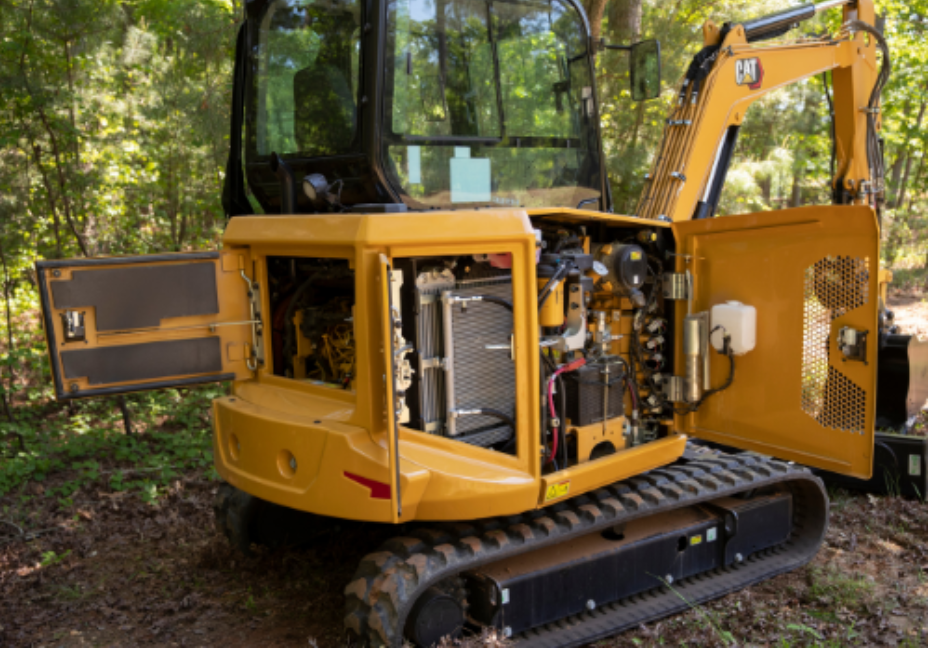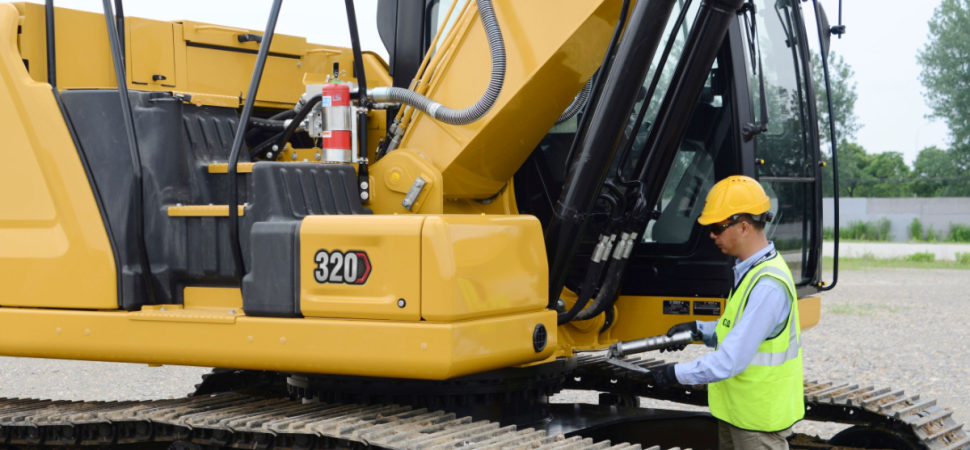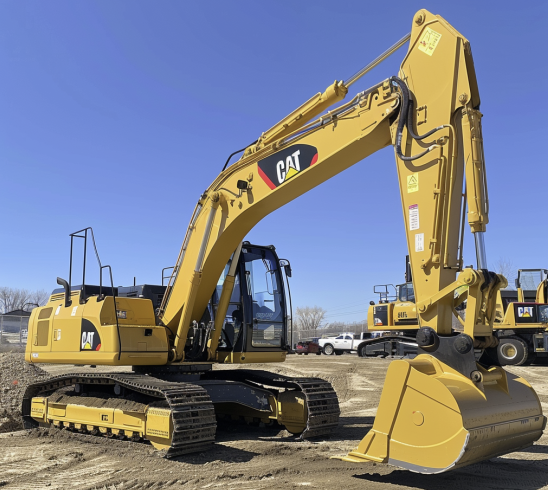Excavators are the backbone of many construction and mining projects. Ensuring they are well-maintained not only boosts their performance but also extends their lifespan. Neglecting regular maintenance can lead to unexpected breakdowns, costly repairs, and project delays.
Seasonal maintenance is essential because different weather conditions and operational demands can affect excavators in various ways. By tailoring maintenance practices to each season, you can prevent weather-related issues, enhance efficiency, and protect your investment.
In this guide, we’ll cover the most important maintenance tips for each season:
Spring: Focus on fluid levels, hydraulic hoses, and lubrication.
Summer: Monitor cooling systems, air filters, and track conditions.
Fall: Conduct a full inspection, replace worn parts, and check electrical systems.
Winter: Learn best practices for cold weather operation, proper fuel use, and storage techniques.
By following these seasonal tips, you can ensure your excavator remains in top condition year-round.
Spring Maintenance Tips

1.Check Fluid Levels
As winter transitions to spring, it’s essential to check and refill all vital fluids in your excavator. This includes hydraulic fluid, coolant, and engine oil. These fluids are crucial for the smooth operation and longevity of your machine.
Hydraulic Fluid: Low hydraulic fluid levels can cause system malfunctions and reduce performance. Check the fluid level regularly and top up as needed.
Coolant: Proper coolant levels help prevent overheating, especially as temperatures rise in spring. Ensure the coolant is at the correct level and consider flushing the system if the coolant appears dirty.
Engine Oil: Fresh engine oil ensures optimal engine performance and reduces wear. Replace the engine oil and oil filter if they are due for a change.
2.Inspect Hydraulic Hoses and Connections
Spring is an ideal time to inspect all hydraulic hoses and connections for any signs of damage that may have occurred during the winter months. Look for leaks, cracks, and wear, as these can lead to serious issues if left unchecked.
Leaks: Check for any signs of hydraulic fluid leaks around hoses and connections. Leaks can indicate a more significant problem and should be addressed immediately.
Cracks and Wear: Examine hoses for any visible cracks or areas where the material appears worn. Replace any damaged hoses to prevent future failures.
3.Clean and Lubricate Moving Parts
Cleaning and lubricating the moving parts of your excavator is crucial to prevent rust and ensure smooth operation throughout the spring season.
Cleaning: Remove any dirt, debris, and old grease from moving parts. Pay special attention to areas that are prone to accumulation.
Lubrication: Apply the appropriate lubricant to all moving parts, such as hinges, pivots, and joints. Proper lubrication reduces friction, prevents rust, and extends the life of the components.
By following these spring maintenance tips, you can prepare your excavator for the busy months ahead, ensuring it operates efficiently and reliably.
Summer Maintenance Tips

Monitor Cooling Systems:During the hot summer months, keeping your excavator’s cooling system in top shape is crucial to prevent overheating and ensure optimal performance.
Radiators: Regularly inspect radiators for any debris or blockages. Clean them to ensure proper airflow and cooling efficiency.
Cooling System Functionality: Check the entire cooling system, including hoses and connections, for any signs of wear or leaks. Ensure that the coolant level is adequate and that the coolant itself is in good condition.
Check Air Filters
Clean air filters are vital for maintaining engine performance, especially during the dusty and dry summer months.
Air Filter Inspection: Regularly check the air filters for dust, dirt, and debris buildup. A clogged air filter can reduce engine efficiency and increase fuel consumption.
Air Filter Replacement: Replace the air filter if it appears dirty or clogged. This simple step can significantly improve your excavator’s performance and longevity.
Inspect and Tighten Tracks
Summer is a great time to inspect and adjust the tracks of your excavator to ensure they are in good condition and properly tensioned.
Track Inspection: Examine the tracks for any signs of wear, damage, or misalignment. Look for cracks, missing bolts, or excessive wear on the track pads.
Track Tension: Check the track tension regularly. Proper tension helps prevent track derailment and reduces wear on the undercarriage. Follow the manufacturer’s guidelines for adjusting track tension to ensure optimal performance.
By paying close attention to these summer maintenance tips, you can keep your excavator running smoothly and efficiently throughout the hot season, avoiding downtime and costly repairs.
Fall Maintenance Tips
Before the onset of winter, performing a comprehensive inspection of your excavator is crucial to identify any potential issues and ensure the machine is in top condition.

Inspection Checklist: Develop a detailed checklist covering all aspects of the excavator, including engine components, hydraulic systems, tracks, and attachments.
Systematic Review: Go through the checklist methodically, inspecting each part for wear, damage, or signs of impending failure. Address any minor issues before they become major problems.
Replace Worn Parts
Identifying and replacing worn or damaged parts in the fall is essential to prevent breakdowns during the colder months.
Identification: During your full inspection, pay close attention to parts that show signs of wear or damage, such as belts, hoses, and seals.
Replacement: Replace any parts that are not in optimal condition. Using genuine or high-quality replacement parts ensures better performance and durability.
Check Electrical Systems
Fall is the perfect time to ensure that your excavator’s electrical systems are in good condition, as cold weather can exacerbate electrical issues.
Batteries: Test the battery’s charge and inspect for any signs of corrosion or damage. Clean the terminals and ensure the battery is securely mounted.
Electrical Connections: Inspect all electrical connections and wiring for wear or corrosion. Tighten any loose connections and replace damaged wires to prevent electrical failures.
By following these fall maintenance tips, you can prepare your excavator for the challenges of winter, ensuring it remains reliable and efficient even in harsh conditions.
Winter Maintenance Tips
Cold Weather Operation Tips:Operating an excavator in cold weather requires special attention to ensure the machine runs smoothly and efficiently.
Warm Up the Engine: Before starting heavy work, let the engine idle for a few minutes to warm up. This helps circulate oil and fluids, reducing strain on the engine.
Monitor Hydraulic Systems: Cold temperatures can thicken hydraulic fluid, so it’s important to check the fluid levels and condition regularly. Use low-viscosity hydraulic fluids designed for cold weather.
Keep Battery Warm: Cold weather can drain battery power quickly. Consider using an engine block heater or battery warmer to maintain battery performance.
Use Proper Fuel and Additives
Using the right fuel and additives is essential for maintaining excavator performance in winter.
Winter-Grade Fuel: Use winter-grade diesel fuel to prevent gelling, which can clog fuel lines and filters. This fuel is formulated to remain fluid in low temperatures.
Fuel Additives: Add anti-gel additives to your fuel to further reduce the risk of fuel gelling. Additionally, using fuel stabilizers can prevent condensation and keep the fuel system clean.
Store Equipment Properly
Proper storage of your excavator during extreme cold is crucial to prevent damage and ensure it is ready for use when needed.
Clean and Inspect: Before storing your excavator, it’s essential to clean it thoroughly. Remove all dirt, debris, and any corrosive substances that could cause rust or damage over time. Conduct a detailed inspection to identify any necessary repairs or maintenance tasks. Address these issues before storing the equipment to avoid further damage and ensure it is in optimal condition when you need it next.
Protect from the Elements: Store your excavator in a sheltered area, such as a garage or storage shed, to protect it from harsh weather conditions like snow, ice, and freezing temperatures. If indoor storage is not available, use heavy-duty covers to shield the machine from the elements. This protection helps prevent rust, corrosion, and other weather-related damage.
Drain Fluids if Necessary: In extremely cold climates, certain fluids in your excavator can freeze and cause significant damage. To avoid this, consider draining fluids like water from the cooling system. Always consult the manufacturer’s guidelines for proper procedures to ensure you do this correctly and safely.
Proper winter storage ensures your excavator remains in top condition and is ready for efficient operation when warmer weather returns.
By following these winter maintenance tips, you can ensure your excavator operates effectively in cold weather and is protected during periods of inactivity, minimizing the risk of damage and costly repairs.
Conclusion
Seasonal maintenance is crucial for ensuring the optimal performance and longevity of your excavator. By adapting your maintenance routine to the specific needs of each season, you can prevent weather-related issues and keep your machine running smoothly all year long.
Regular maintenance not only enhances efficiency and reliability but also extends the lifespan of your excavator. Proactive upkeep helps you avoid costly repairs and unexpected downtime, keeping your projects on track. Don’t wait for problems to arise. Start your seasonal maintenance routine today to ensure your excavator operates at its best throughout the year. Have you found these tips helpful? Share your maintenance experiences in the comments below, and feel free to ask any questions you might have. Let’s keep the conversation going!




